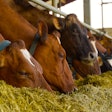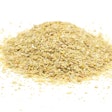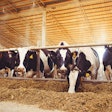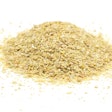
Although both share the term ‘essential,’ they are totally different
In animal nutrition terms, essential means any nutrient that must be provided through feed on a daily basis. It does not imply that other compounds are not essential for the animal.
In fact, the organism synthesizes myriad biochemical compounds using building blocks from those nutrients we provide in the feed. But, for all practical purposes, in the feed industry, “essential” means something we must (emphasis is on the “must”) provide daily.
Additives are not essential, under this narrow definition, as they can be considered rather optional – without them we will not see nutrient deficiencies but rather a change in productivity. Phytogenics, for example, are frequently used, but they are not nutritionally essential – we shall keep this example for later.
On the other hand, in the fragrance industry (Chanel No. 5, for example) essential comes from the word essence, most likely from the extraction of certain compounds such as specific oils that were used to give their distinct aroma to fragrances. Thus, in this industry, essential oils means aromatic oils. Some would argue that perfume is absolutely essential, but this is another story.
For us, in the feed industry, this terminology that we borrowed from the fragrance industry continues to create confusion. And, here’s a new one.
Back to phytogenics, then. We shall recall that when they were first introduced in the animal industry, they were based, more or less, on extracts, similar to those essential oils described above. Thus, in feed terminology, essential oils became synonymous to phytogenic compounds, even though these compounds may no longer be oils, although some have a great aroma.
Come the era of omega-3 fatty acids, one of which is considered essential – the alpha linolenic acid or ALA. Now, fatty acids are components of oils (and fats), so there appears to be a false connection between essential fatty acids and essential oils. But, this connection is only in the name, and it creates some confusion.
There is a part of the industry that believes essential oils (phytogenics) are the same or can substitute essential fatty acids (specifically ALA). This is incorrect as the two are not related in their nutritional roles. In other words, phytogenic essential oils cannot be used as a substitute for omega-3 fatty acids, specifically of the essential ALA. Everything that shines is not gold, and everything that is called essential is not a source of omega-3 fatty acids.
Despite all that, it is interesting to see how great the interest in omega-3 fatty acid supplementation of animal feeds is, and how undervalued remains this great opportunity by the marketing segment of our industry.

















